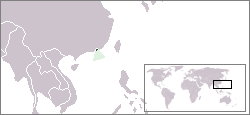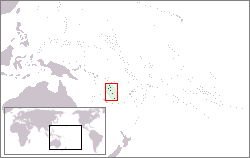The Employment Non-Discrimination Act (ENDA) is legislation proposed in the United States Congress that would prohibit discrimination in hiring and employment on the basis of sexual orientation or, depending on the version of the bill, gender identity, by employers with at least 15 employees.

Same-sex marriage has been legal in Manitoba since September 16, 2004. In the case of Vogel v. Canada, the Court of Queen's Bench of Manitoba ordered the province to begin issuing marriage licences to same-sex couples. This decision followed a suit brought by three couples who were denied the right to marry. Both the provincial and federal governments had made it known that they would not oppose the court bid.
Libertarian perspectives on LGBT rights illustrate how libertarian individuals and political parties have applied the libertarian philosophy to the subject of lesbian, gay, bisexual and transgender (LGBT) rights. In general, libertarians oppose laws which limit the sexual freedom of adults.

Freedom of religion in Canada is a constitutionally protected right, allowing believers the freedom to assemble and worship without limitation or interference.

Lesbian, gay, bisexual and transgender (LGBT) rights in the United States rank among the most advanced in the world, with public opinion and jurisprudence changing significantly since the late 1980s.

Lesbian, gay, bisexual, and transgender (LGBT) people in Kenya face significant challenges not experienced by non-LGBT residents. Sodomy is a felony per Section 162 of the Kenyan Penal Code, punishable by 21 years' imprisonment, and any sexual practices are a felony under section 165 of the same statute, punishable by 5 years' imprisonment. On 24 May 2019, the High Court of Kenya refused an order to declare sections 162 and 165 unconstitutional. The state does not recognise any relationships between persons of the same sex; same-sex marriage is banned under the Kenyan Constitution since 2010. There are no explicit protections against discrimination on the basis of sexual orientation and gender identity. Adoption is restricted to heterosexual couples only.

Lesbian, gay, bisexual, and transgender (LGBT) rights in Costa Rica have evolved significantly in the past decades. Same-sex sexual relations have been legal since 1971. In January 2018, the Inter-American Court of Human Rights made mandatory the approbation of same-sex marriage, adoption for same-sex couples and the removal of people's sex from all Costa Rican ID cards issued since October 2018. The Costa Rican Government announced that it would apply the rulings in the following months. In August 2018, the Costa Rican Supreme Court ruled against the country's same-sex marriage ban, and gave the Legislative Assembly 18 months to reform the law accordingly, otherwise the ban would be abolished automatically. Same-sex marriage became legal on 26 May 2020.
Stopps v Just Ladies Fitness (Metrotown) Ltd was a discrimination by sex case heard before the British Columbia Human Rights Tribunal that was significant in Canadian law because it found that a women-only admission policy of a public gym was not discrimination.
Human rights complaints against Maclean's magazine were filed in December 2007 by Mohamed Elmasry of the Canadian Islamic Congress with the Canadian Human Rights Commission, the British Columbia Human Rights Tribunal and the Ontario Human Rights Commission. Maclean's magazine was accused of publishing eighteen Islamophobic articles between January 2005 and July 2007. The articles in question included a column by Mark Steyn titled "The Future Belongs to Islam", an excerpt from a book written by Steyn.
The British Columbia Human Rights Tribunal is a quasi-judicial human rights body in British Columbia, Canada. It was established under British Columbia's Human Rights Code. It is responsible for "accepting, screening, mediating and adjudicating human rights complaints."
Many views are held or have been expressed by religious organisation in relation to same-sex marriage. Arguments both in favor of and in opposition to same-sex marriage are often made on religious grounds and/or formulated in terms of religious doctrine. Although many of the world's religions are opposed to same-sex marriage, the number of religious denominations that are conducting same-sex marriages have been increasing since 2010. Religious views on same-sex marriage are closely related to religious views on homosexuality.

Lesbian, gay, bisexual, and transgender (LGBT) people in Hong Kong may face legal challenges not experienced by non-LGBT residents.

Lesbian, gay, bisexual, and transgender (LGBT) persons in Vanuatu may face legal challenges not experienced by non-LGBT residents. Same-sex sexual activity is legal, but households headed by same-sex couples are not eligible for the same legal protections available to opposite-sex married couples.

National Coalition for Gay and Lesbian Equality and Others v Minister of Home Affairs and Others, [1999] ZACC 17, is a 1999 decision of the Constitutional Court of South Africa which extended to same-sex partners the same benefits granted to spouses in the issuing of immigration permits. It was the first Constitutional Court case to deal with the recognition of same-sex partnerships, and also the first case in which a South African court adopted the remedy of "reading in" to correct an unconstitutional law. The case is of particular importance in the areas of civil procedure, immigration, and constitutional law and litigation.

LGBT rights in Mexico City are considerably more progressive than the rest of Mexico. On March 4, 2010, it became the first area in Mexico to issue same-sex marriage licenses to same-sex couples.
In the United States, a religious freedom bill is a bill that, according to its proponents, allows those with religious objections to oppose LGBT rights in accordance with traditional religious teachings without being punished by the government for doing so. This typically concerns an employee who objects to abortion, euthanasia, same-sex marriage, civil unions, or transgender identity and wishes to avoid situations where they will be expected to put those objections aside. Proponents commonly refer to such proposals as religious liberty or conscience protection.
Kimberly Nixon is a transgender woman who filed a human rights complaint against Vancouver Rape Relief & Women's Shelter Society (VRRS) for discrimination. VRRS argued that Nixon, a transgender woman, did not have the same life experiences as a woman who was assigned female at birth, and could not volunteer as a peer rape counselor. She fought her case successively through the British Columbia Human Rights Tribunal, the Supreme Court of British Columbia, the British Columbia Court of Appeal, each of which rejected her complaint, and then eventually the Supreme Court of Canada, which dismissed her request to appeal the decision against her case on February 1, 2007.
Hong Kong does not recognise same-sex marriages or civil unions. However, same-sex couples are afforded limited legal rights as a result of several court decisions, including the right to apply for a spousal visa, spousal benefits for the partners of government employees, and guardianship rights and joint custody of children.
Jessica Simpson, commonly known by her former legal name, Jessica Yaniv, is a Canadian transgender activist in British Columbia who is best known for filing at least 15 complaints of discrimination on the basis of gender identity against various beauty salons after they refused to wax her male genitalia. The complaints were filed with the British Columbia Human Rights Tribunal in 2018 and 2019. It was the first major case of alleged transgender discrimination in retail in Canada. In 2019, the Tribunal rejected her complaints and ruled Yaniv had racist motives. In following years, Yaniv has gone on to make additional complaints of discrimination, libel and privacy breach.
303 Creative LLC v. Elenis, 600 U.S. 570 (2023), is a United States Supreme Court decision that dealt with the intersection of anti-discrimination law in public accommodations with the Free Speech Clause of the First Amendment to the United States Constitution. In a 6–3 decision, the Court found for a website designer, ruling that the state of Colorado cannot compel the designer to create work that violates her values. The case follows from Masterpiece Cakeshop v. Colorado Civil Rights Commission, 584 U.S. ___ (2018), which had dealt with similar conflict between free speech rights and Colorado's anti-discrimination laws, but was decided on narrower grounds.








